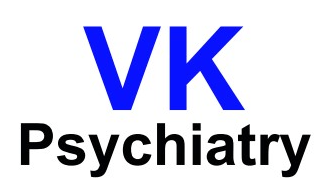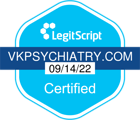S.A.D. Holidays and the link to Alcohol and Substance Abuse
When the stress of the holidays leads to anxiety, depression, and addiction, there is hope. Learn how you can overcome these psychiatric conditions and start your road to recovery now.

What is S.A.D and how to overcome this type of depression before it leads to addiction.
Ah, the holidays! For many Missouri and Illinois families, this is the most wonderful time of the year. It is filled with joy, families gathering around a Christmas tree, turkey and stuffing dinners, and of course gift giving. However, for others, the holidays can signify a time of financial stress, family conflicts, grief, loneliness and an overwhelming feeling of
S.A.D. or seasonal affective disorder.
If you find the holidays stressful, you are not alone. One Google search we conducted resulted in more than 2.2 million results. According to the CDC, the correlation to seasonal affective disorder and the uptick in alcohol consumption, substance abuse, and deaths related to both, are at an all time high. The emotional strains of the holidays and the winter weather take it’s toll during the winter months from November, December, January, and February and during this time, nearly 6% are affected by seasonal affective, with another 14% experiencing the ‘winter blues.’
Although most people look forward to the holidays, for others, it can serve as a sad reminder of trauma, painful memories or various problems, such as financial and familial stressors. According to the CDC, these negative emotions can trigger an episode of alcohol abuse, substance use, as well as extreme strain on overall mental health. December and January are considered the most dangerous time of year for drug and alcohol related deaths.
Thanks to reduced travel restrictions, and reduced guidelines on large social gatherings, many Missourian’s will experience their first ‘real’ holiday season in years. This could lead to an ‘overindulgence’ in social drinking.
Here are a few facts that you should consider before heading out for the holidays.
- 2020 was the deadliest year to date for overdose deaths in the US.
- According to the CDC, over 100,000 drug overdose deaths occurred in the las 12 months, and this is an almost 30% increase from the previous year.
- Nearly every state in the U.S. has reported an uptick or an outbreak of drug or opioid related deaths in the past year.
If you or someone you know has suffered from addiction in the past, it may seem easy to spot the warning signs, and when they are no longer choosing sobriety. It can be difficult to determine if you or a loved one may have a problem, because drinking and smoking are common social behaviors.
General signs that you or a loved one may have an addiction issue are:
- Inability to stay away from a substance
- Secretive behavior
- Change in your mood, attitude, and overall social behavior
- Financial instability
- Loss of interest in activities unrelated to the substance
- Withdrawal symptoms when not consuming the substance
What are the treatment options available?
While there are many ways to overcome addiction, the first step is to admit there is an addiction and seek detoxification. This typically takes place in a hospital setting, with follow up treatments to ensure long lasting sobriety. To achieve this, you will require lifestyle changes, exercise, a healthy diet, and psychiatric treatment. Having a substance abuse disorder may make you feel vulnerable. You are not alone. If someone you love is struggling, reach out and offer support, because together, there is hope.
You can achieve long term sobriety, and we are here to help you on your road to recovery.
Learn more at 636-778-9415 for Dr. Jeffrey Vanderkooi, or 636-778-9427 for Nurse Practitioner, Dana Vanderkooi.





